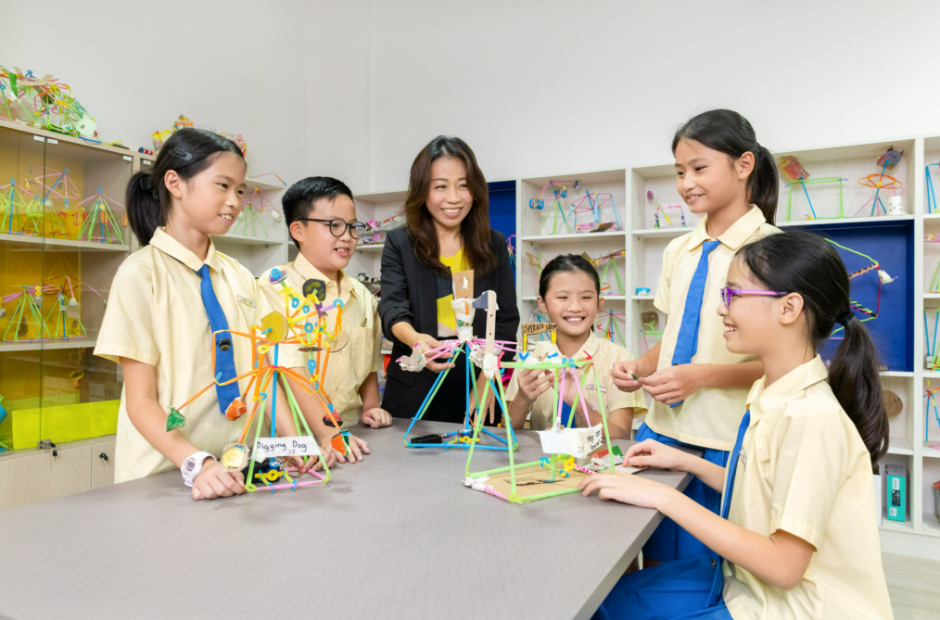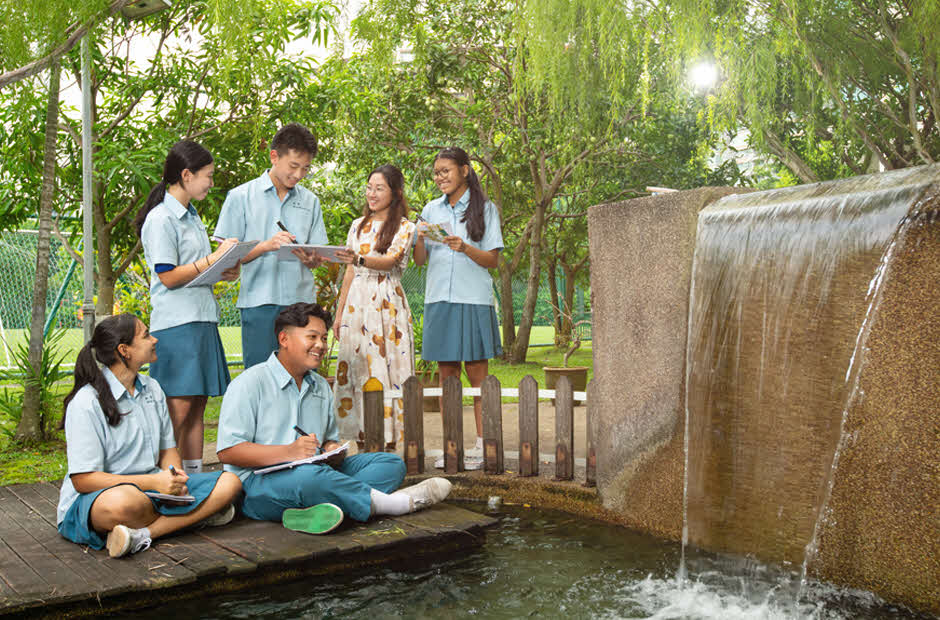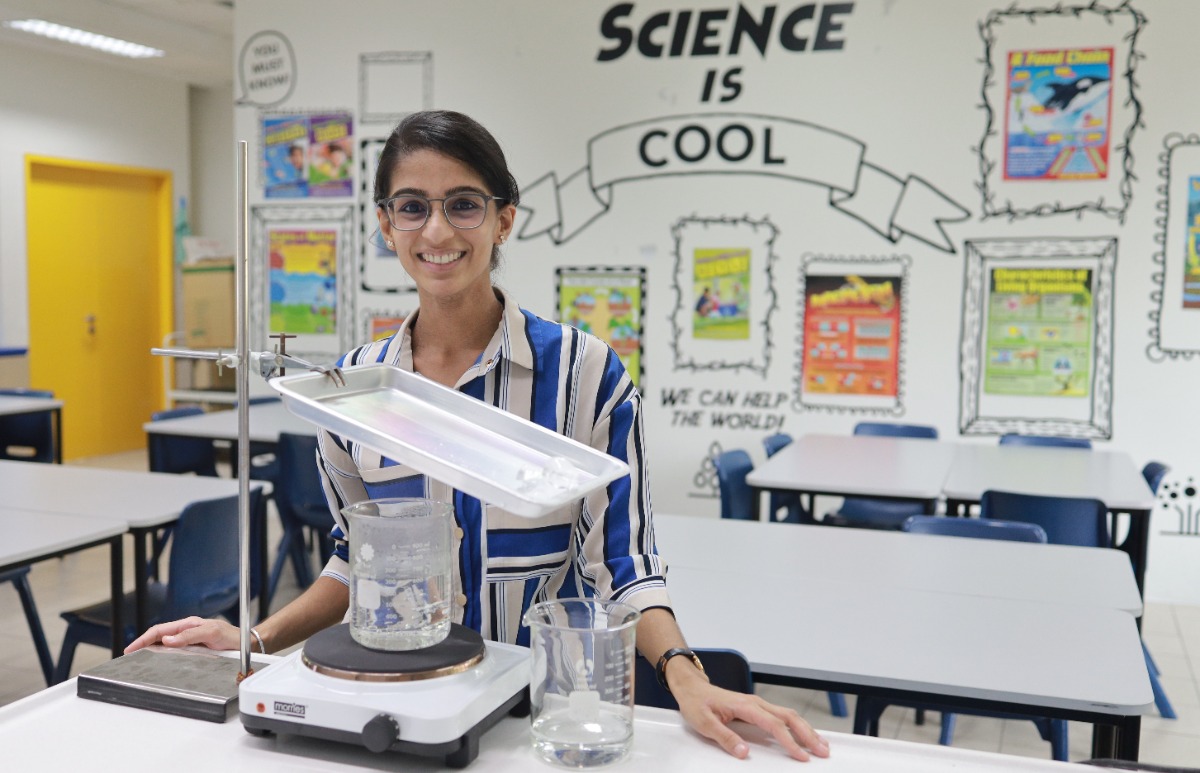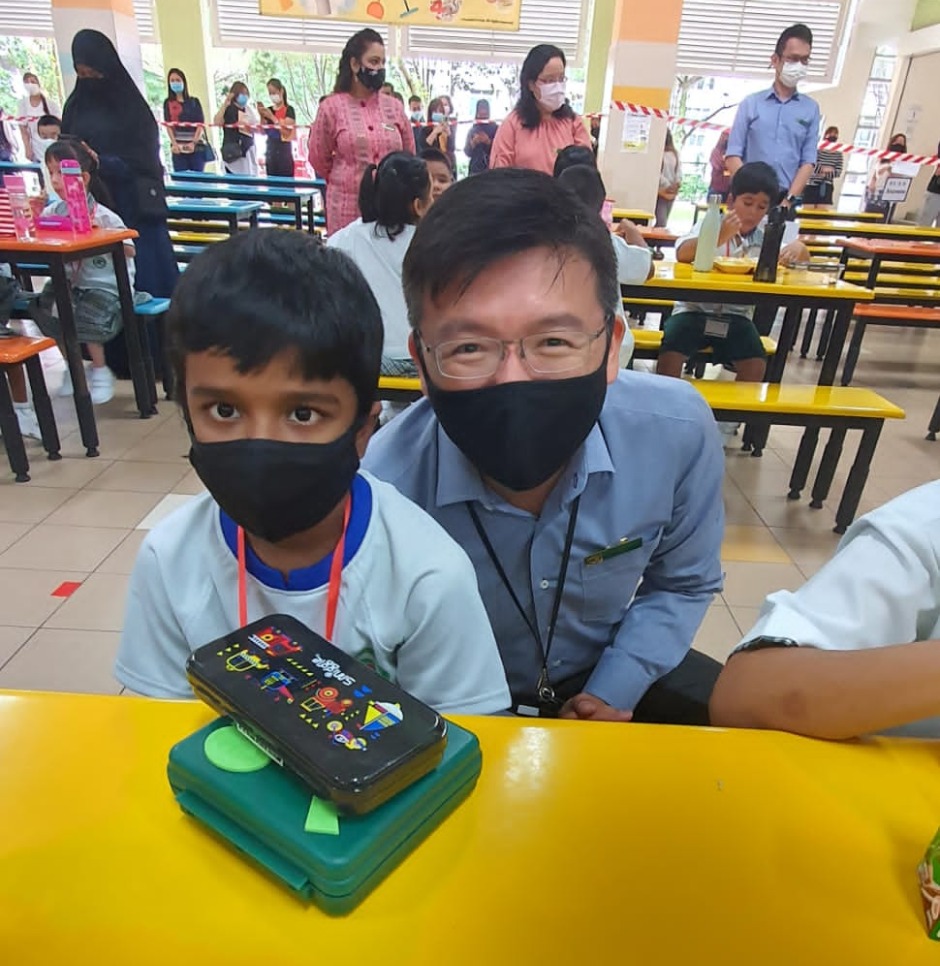Before Science lesson starts for the day, the students at Fairfield Methodist School (Primary) get a check-up. Not your regular check-up, but an emotional one.
Calling up the Reflect app on Microsoft Teams, Ms Chen Siyun runs a quick poll. On the students’ personal learning devices, a cute monster icon pops up and asks them how they felt about their recent test on Cells. Within seconds, Ms Chen could see the results on her screen.
A few students had clicked on the icon with the downturned mouth – some are the same ones who have reported negative emotions for the past few weeks. She makes a note that she should speak to them later. Based on the responses, she then leads the class through some activities, such as breathing exercises, helped by another fuzzy monster that pops up on their screens, to calm the room and get them into the right frame of mind to learn.
Only then does Ms Chen start the lesson proper, to clear up the gaps in their understanding that came up in the test.
Learning is such an emotional endeavour. In brain science, we talk about getting the mind ready for learning. When their mood is good and they are not feeling stressed, they’re ready to learn.
Ms Chen Siyun
Checking in on students’ social-emotional state may seem an unconventional start to any lesson but to Ms Chen, their Science teacher and Head of Information Communications Technology (ICT), it is a vital part of her curriculum. “Learning is such an emotional endeavour,” she says. “In brain science, we talk about getting the mind ready for learning. When their mood is good and they are not feeling stressed, they’re ready to learn.”
Creating a healthy learning community with AI
When the COVID-19 pandemic struck three years ago, there was a mad scramble for schools everywhere to get onto Home-based Learning (HBL) platforms. As a new HOD of ICT then, Ms Chen quickly got her school’s virtual campus up and running. But the hastened roll-out came with its own challenges. New to cyberspace, the students didn’t quite know how to behave.
“It was quite chaotic… The students would spam each other nonstop because they thought that they were being friendly online,” she recalls. “So, we complemented with cyber wellness lessons and provided guidelines about cyber bullying. We told them that cyber bullying is no different from normal bullying.”
While the dust eventually settled, the experience sparked an idea. Ms Chen pitched for the development of an AI chatbot called FAIRbot – a 24/7 online helper to all students. She explains, “Because there was so much online interaction going on, we want FAIRbot to harness the rich data to motivate students and to direct them well.”
FAIRbot fulfils several objectives. It can monitor and promote cyber wellness during virtual chats. When the students are studying online, it can also be a learning companion and coach, directing students to the right resources and helping them revise past content.
In fact, one of Ms Chen’s recent collaborations is with a researcher from the National Institute of Education – to attempt to infuse knowledge-building thinking scaffolds into FAIRbot. In simpler terms, this means that the app will be able to learn how to guide students more effectively in their revision, which indirectly lightens the teachers’ workload.
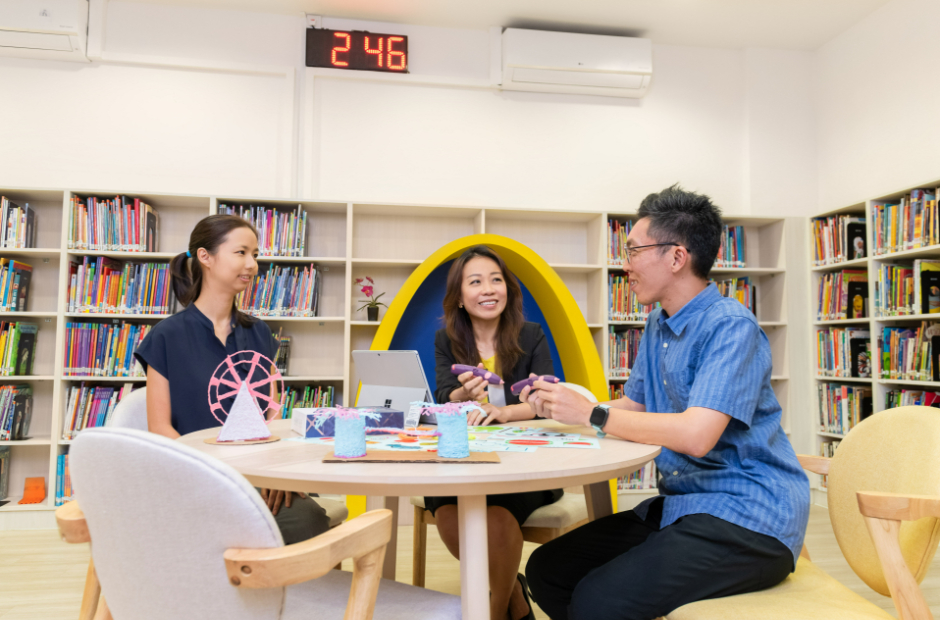
Morphing from microbiologist to teacher
Recalling how she was a curious and inquisitive child who loved Science, Ms Chen initially trained and worked as a microbiologist. But there was a part of her who also loved talking about Science. “I saw how much teachers could impact students more than the actual discipline of the subject, moulding their character through the lessons that they create,” she says.
She got a glimpse of where her curiosity about teaching would take her, when she was placed in a secondary school and assigned a few students who had reading difficulties.
She had personal experience with learning struggles: Three of her four daughters have special educational needs. To find out how she could be of better support, she took up a specialist diploma at the Dyslexia Association of Singapore (DAS). The knowledge came in handy when she started experimenting with Artificial Intelligence (AI) as an intervention measure.
Offering personalised coaching through a reading app
In 2021, Ms Chen started gathering data on various students’ reading progress, and tapping on AI. She deployed an app that could personalise coaching for the individual student, called “Artificial Intelligence in Reading for Student-centric Oral Practice”.
To her excitement, her students found themselves levelling up at their own pace as their fluency improved. It proved to be a powerful teaching tool.
Students on the after-school reading programme using the reading app have improved by leaps and bounds. For two Primary 1 students, Ms Chen says, “They came in not knowing how to read at all. By the end of P1, one was reading at P2 level while the other had reached 75% fluency rate for a P3 text.” What she found particularly gratifying was that the two students have grown into avid readers.
For her innovation, Ms Chen won MOE’s Innergy Gold Award in 2022 and has inspired other schools to consider using such a tool to better support their students.
Promoting AI-supported, student-centred learning
Ultimately, it was her desire to help fellow teachers teach more effectively and her students to acquire future-ready skills that spurred Ms Chen to delve deeply into fields of knowledge new to her – whether it’s in ICT, AI, Educational Technology, or Design Thinking.
In her eyes, technology in education amplifies rather than diminishes the role of the teacher, and forges connections, not distance, with students.
She says, “Technology enables us to have practices that were not possible before. It shifts teaching practices and enables new pedagogies. Students can look forward to more interesting and engaging lessons because of technology.”



